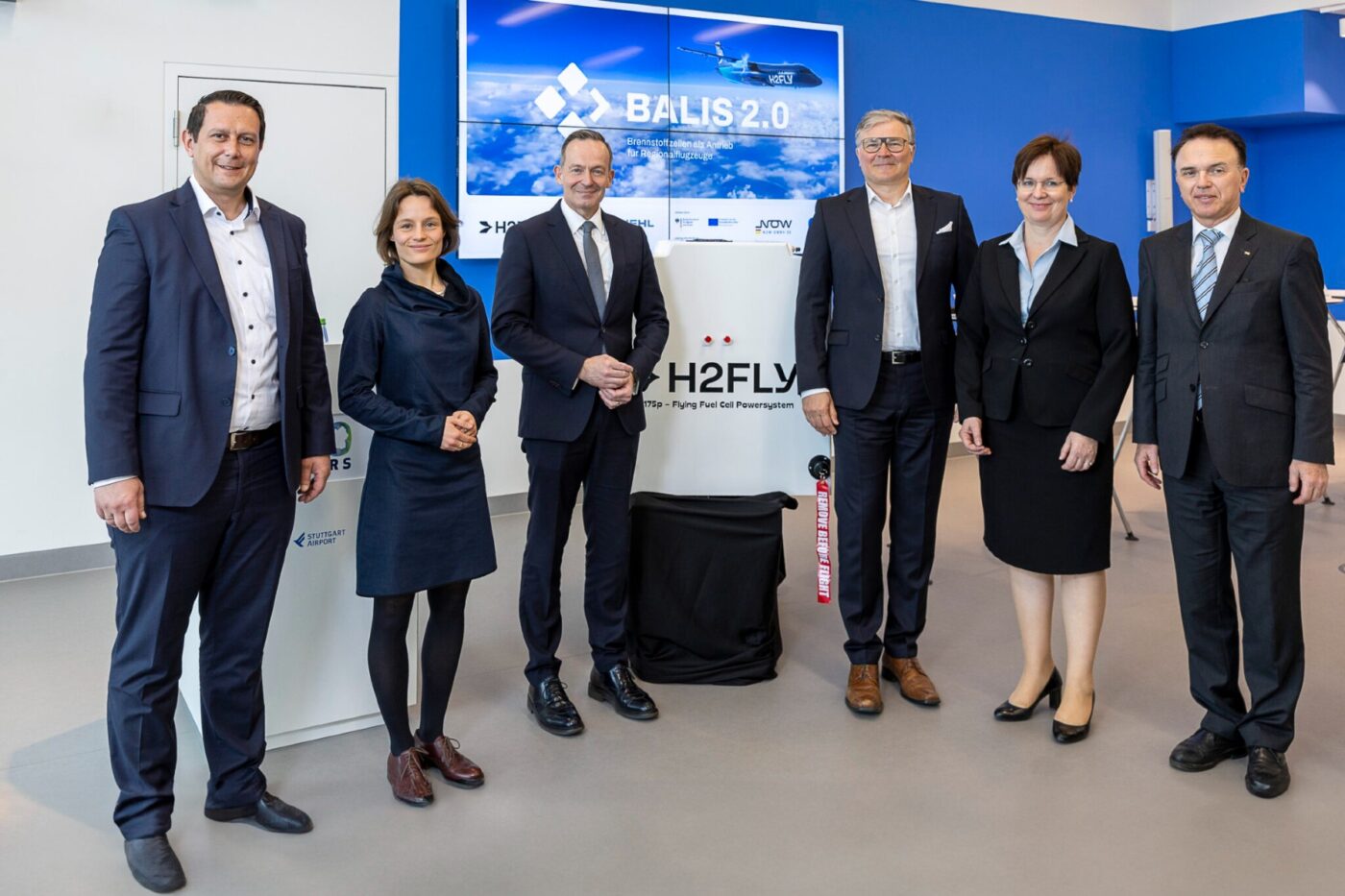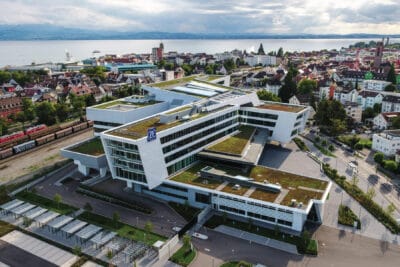BALIS 2.0 project focusses on fuel cells for aviation
The federally funded BALIS 2.0 project, which is scheduled to run until 2026, is the successor to the BALIS project initiated at the beginning of 2021, which was led by the DLR Institute of Technical Thermodynamics and focussed on fuel cell systems with an output of around 1.5 megawatts. In 2021, the German Aerospace Centre (DLR) laid the foundation stone for a test field at the Empfingen Innovation Campus in the northern Black Forest to develop and test fuel cell drives for various modes of transport – first and foremost for aircraft.
BALIS 2.0 is now headed by H2FLY, a Stuttgart-based company specialising in the development of hydrogen fuel cell systems for aircraft. DLR and Diehl Aerospace are acting as cooperation partners. The main focus of those involved is to develop and test an aviation-compatible fuel cell module with an output of 350 kW. This basic module will later form the basis for the development of megawatt propulsion systems. According to the initiators, this could be used in future to power commercial regional aircraft with 40 to 80 seats with zero emissions.
The first ground tests of the 350 kW fuel cell system are planned for 2025. The aforementioned DLR test field in Empfingen, which is due to go into operation in the course of this year, is regarded as the centrepiece of the project alongside the H2FLY’s home airport in Stuttgart. The division of labour between the project participants is as follows: “H2FLY is responsible for the development and setup of the fuel cell system. In the BALIS test field, the German Aerospace Center (DLR) studies the coupling behaviour of fuel cell systems in the megawatt-class range with an electric drive and performs studies to optimise the overall system operation. Diehl Aerospace will continue to develop its high-performance and highly reliable platform technology to enable efficient coupling and scaling of fuel cell systems.” The Federal Ministry for Digital and Transport Affairs is funding the project with around 9.3 million euros.
German Federal Transport Minister Dr Volker Wissing said: “I am very proud that Germany is playing a pioneering role in developing hydrogen fuel cell systems for commercial aviation. This creates the technical foundation for marketable solutions for tomorrow’s CO2-neutral flying. Companies and research institutions, like those in the BALIS 2.0 project consortium, are leading the way with great expertise and a pioneering spirit.”
Prof Dr Josef Kallo, co-founder and CEO of H2FLY, comments: “Federal funding for BALIS 2.0 demonstrates the growing significance of hydrogen fuel cell systems as a viable solution for clean aviation. The project insights will propel the development of megawatt-class powertrains, significantly accelerating the transition to sustainable, zero-emission flight.”





0 Comments